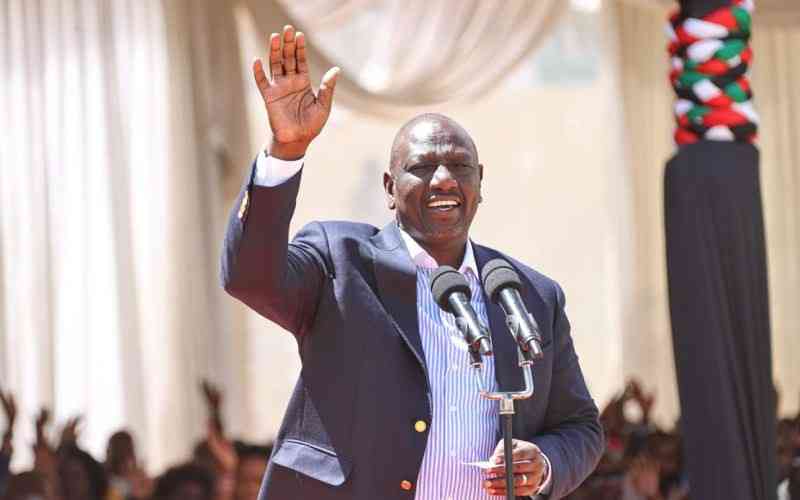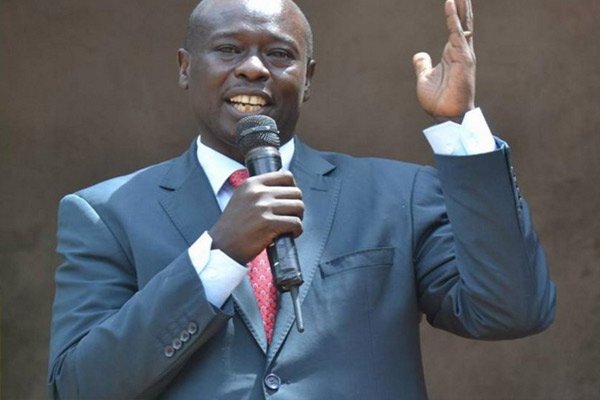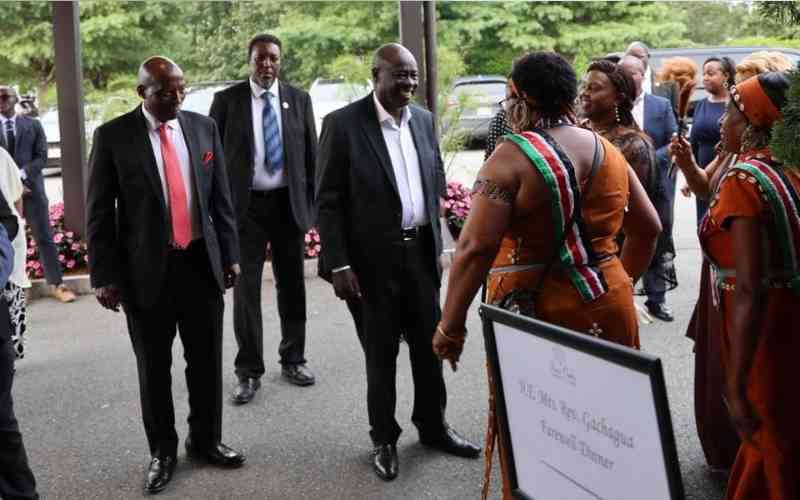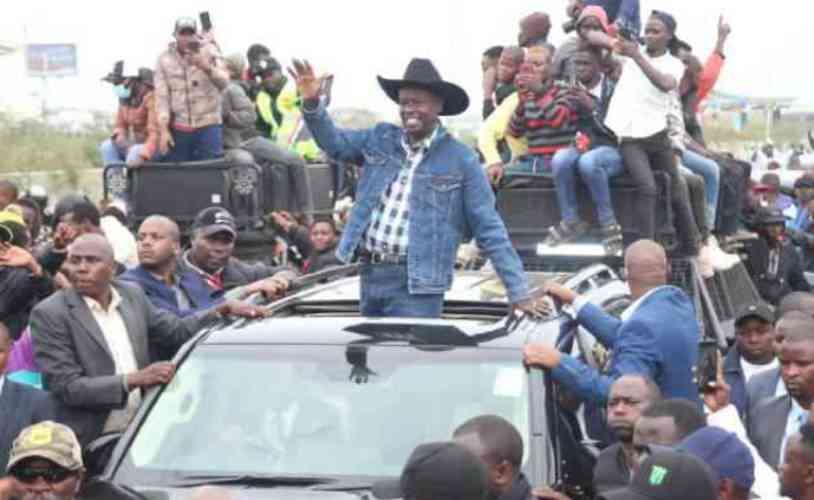Million-Dollar Bribery Scandal Rocks Parliament: Ruto's Explosive Claims Spark Firestorm!
)
President William Ruto has launched a stringent crackdown on corruption within Kenya's legislative bodies, issuing a stark warning to both corrupt legislators and state officials. Speaking at a Kenya Kwanza-ODM joint parliamentary group meeting in Karen, President Ruto declared an end to the culture of extortion he termed "Soko Huru" (free market) within parliamentary committees. He vowed decisive action, stating unequivocally that those implicated in bribery would face arrest, not just public shaming. The President condemned the pervasive corruption, asserting it was crippling national progress and eroding Parliament's credibility. He firmly stated, "There are people who are destroying the credibility of Parliament, and they are collecting money in the name of Parliament... We are not going to shame them. We are going to arrest them."
The term "Soko Huru," as defined by the President, signifies a cynical marketplace where parliamentary committee decisions, legislative approvals, and oversight functions are allegedly for sale. He questioned the legitimacy of certain roles within parliamentary committees, directly linking them to illicit activities. "This fellow who is called chairman of welfare in committees, what is their job?" he rhetorically asked, before answering, "Extortion. That's it." To substantiate his claims, President Ruto cited specific examples, alleging that an official facing Senate oversight managed to raise Sh150 million to influence a decision. He also directly challenged Members of Parliament, alleging that a few members of a committee collected Ksh10 million to pass an anti-money laundering law, emphasizing that such illicit funds rarely benefit the entire house but are pocketed by a few individuals. These comments echo earlier remarks made at the Devolution Conference in Homa Bay, where he accused lawmakers of demanding bribes from Executive members like Cabinet Secretaries and Governors.
While his threats to arrest corrupt officials captured significant attention, the core of the President's address was a passionate appeal for bipartisan support to implement crucial reforms. During the meeting, intended to foster national unity, President Ruto lauded opposition leader Raila Odinga for his courage in fostering collaboration, portraying it as a pivotal moment for the nation. He highlighted significant alignment (nearly 70%) between the Kenya Kwanza and Azimio manifestos, arguing that political divisions were hindering the implementation of universally agreed-upon solutions for national development.
Central to his vision is the aggressive implementation of the affordable housing program, which he presented as a bipartisan project rooted in both coalitions' manifestos. He pointed to its early successes in job creation and urban transformation. On agriculture, President Ruto made a bold promise regarding the long-troubled sugar sector, declaring that within two to three years, Kenya would become a net exporter of sugar, attributing this to unified political will. Addressing national debt concerns, the President detailed a major policy shift: upcoming mega-infrastructure projects, such as the road to Mau Summit and the standard gauge railway extension from Naivasha to Malaba, will be funded through Public-Private Partnerships (PPPs) rather than debt. He also stressed the importance of investing in youth, calling on MPs to utilize NG-CDF resources to establish ICT hubs in every constituency to create digital jobs and opportunities for graduates.
In response to President Ruto's allegations, members of the Senate, particularly the Senate County Public Accounts and Investments Committee (CPAC) chaired by Homa Bay Senator Moses Kajwang’, challenged the House speakers to summon the President to provide evidence. During a committee session, senators, including Jones Mwaruma, Edwin Sifuna, Enock Wambua, and Samson Cherargei, invoked Article 125 of the Constitution, which empowers Parliament to summon any person for evidence. Senator Cherargei asserted that no one, including the President, is exempt from appearing before parliamentary bodies for accountability. Senator Sifuna criticized governors for using the Devolution Conference as a platform to attack senators, questioning why they did not acknowledge the alleged bribery. Former Prime Minister Raila Odinga also weighed in, questioning the Senate’s direct oversight of counties, suggesting that county assemblies should primarily oversee county governments. The President's remarks and the subsequent Senate response have significantly intensified political debate across the country.
You may also like...
2026 Jeep Cherokee Unveiled: Specs, Price, and Heritage Revival Spark Debate

Jeep re-enters the compact SUV market with the all-new 2026 Cherokee Hybrid, boasting a boxy XJ-inspired design and an e...
Mercedes-AMG GT XX Shatters EV Record, Dares Tesla to Catch Up

Mercedes-AMG's Concept AMG GT XX shattered 25 electric vehicle records during an ultramarathon run at Nardò, covering th...
Tornado Cash Trial Concludes with Guilty Verdict, Crypto Community Seeks Answers
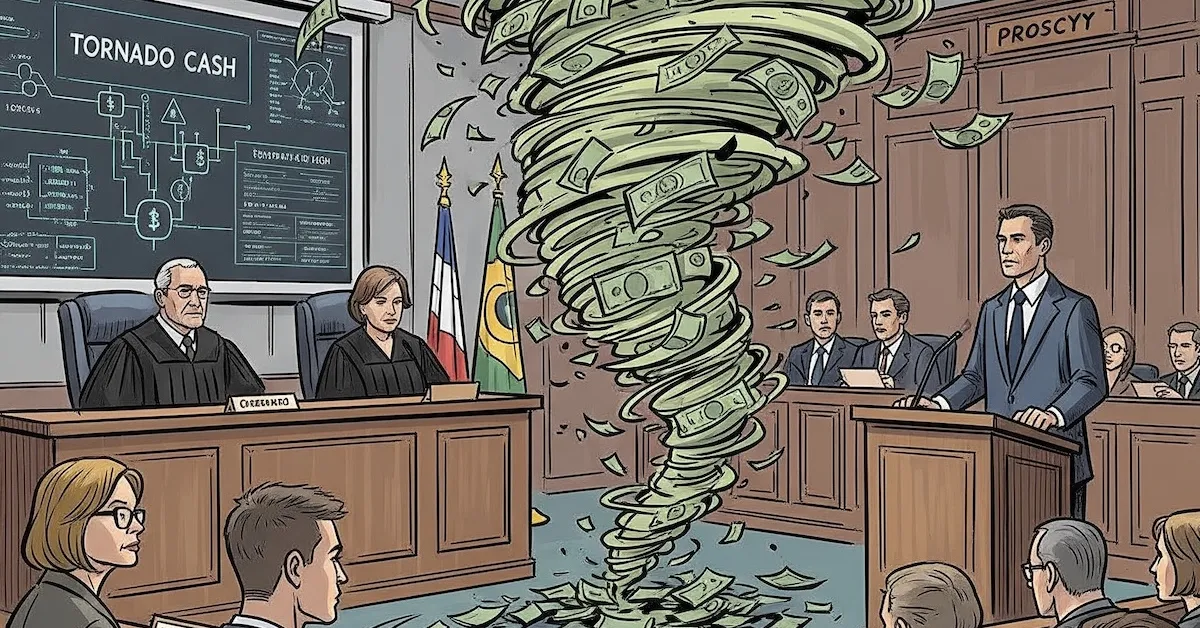
The Tornado Cash trial has concluded with co-founder Roman Storm found guilty of conspiracy to operate an unlicensed mon...
Ethereum Skyrockets to New All-Time High, Legendary Trader Calls It 'Powerful'
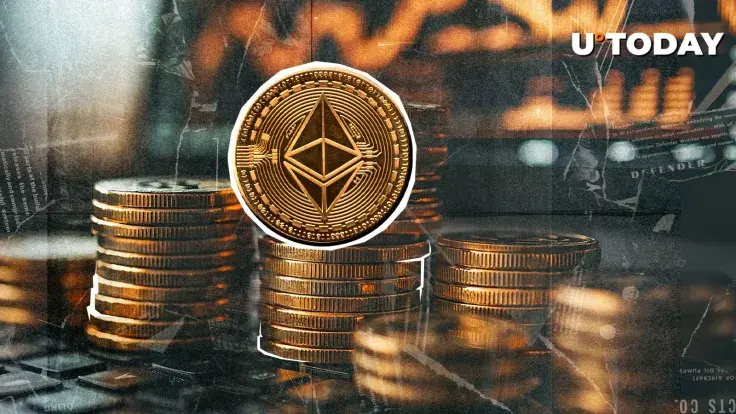
Ethereum (ETH) has soared to a new historic peak of $4,885, marking its first all-time high in nearly four years, follow...
AI's Untamed Momentum: Nvidia's Explosive Growth & Future Outlook

AI chipmaker Nvidia's third-quarter revenue forecast surpassed Wall Street estimates, driven by strong demand for its ch...
Trade War Escalates: India Reacts to Crushing US Tariffs on Exports

India is responding to new US tariffs that will affect 55% of its merchandise exports by implementing national strategie...
Thai-Cambodian Border Boiling Point: Fake News, Assassination Plots, and Land Disputes Fueling Tensions

Tensions persist along the Thai-Cambodian border, fueled by accusations of assassination plots, alleged landmine deploym...
Shockwave in Equatorial Guinea: President's Nephew Jailed in Sex Tape Embezzlement Scandal
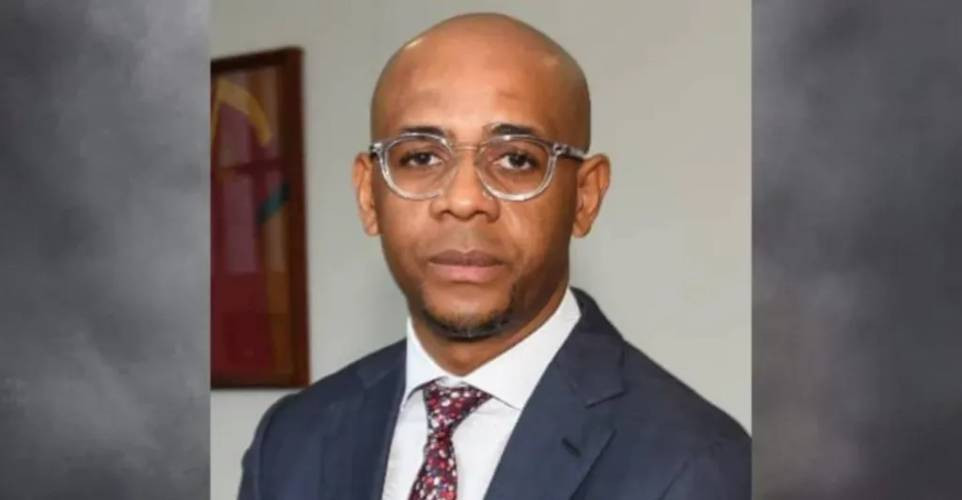
Equatorial Guinea's former financial investigation agency head, Baltasar Ebang Engonga, has been sentenced to eight year...
